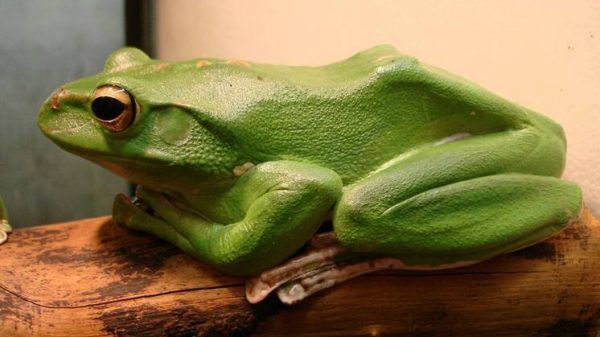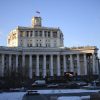 Dalits protest their treatment following the rape and murder of a low-caste woman in 2020. Photo: AP Photo/Aijaz Rahi
Dalits protest their treatment following the rape and murder of a low-caste woman in 2020. Photo: AP Photo/Aijaz Rahi
Under the scorching midday sun of rural Uttar Pradesh, villagers seek whatever shade they can, gathering under trees or behind walls.
It's one of those days when there is no electricity in the village of Bhogipur, a cluster of slums on dirt roads home to a community of Dalits, the lowest Hindu caste in India's stratified society.
No air. air conditioning, staying inside is not an option.
Life here has long been difficult, says Reshma, a 27-year-old Dalit woman. But Narendra Modi's Hindu nationalist Bharatiya Janata Party (BJP) government, for which she voted in 2014, has only complicated matters.
«Our children face discrimination in schools,» she said. «Our men are beaten, killed for loving or planning to marry upper-caste women, our women are raped or treated as sex objects. We face humiliation at all levels of society, including in religious places.»
India may have reached peak Modi Read more
But last week the situation changed. This small village is part of a quiet revolution that played a decisive role in depriving Modi and the BJP of their majority in India's Parliament.
Uttar Pradesh is India's largest region and elects 80 members of the 543-seat Lok Sabha. Mr Modi has spared no effort in trying to hold on to the province, opening a temple to the Hindu god Lord Rama in Ayodhya (a controversial site of a pre-existing Muslim shrine) and providing free rations and housing loans to the poor.
But in the process In this year's polls, the BJP won only 36 seats here, compared to 62 in 2019.
This helped break away from Modi's party, which had been touted as an unstoppable force for much of the election. preliminary stage — 32 seats short of the 272 needed to form a majority.
On Sunday, Mr Modi was inaugurated for a third term as a chastened figure.
Announcing his coalition with the National Democratic Alliance (NDA), Mr Modi on Friday touted the need for “consensus” politics, weeping as his party promised to win 400 seats in the election campaign.
Key to the BJP’s humiliation has been a shift in the voting habits of Dalits.
Although India’s 2,000-year-old social hierarchy was formally abolished in 1950, it still exists across the country, classifying Hindus by birth.
There are four main groups: Brahmins (priests and teachers), Kshatriyas (warriors and rulers), Vaishyas (traders and merchants) and Shudras (labourers).
 Narendra Modi, leader of the Bharatiya Janata Party, acknowledged that politics should be more conciliatory after the election results. Photo: RAJAT GUPTA/EPA-EFE
Narendra Modi, leader of the Bharatiya Janata Party, acknowledged that politics should be more conciliatory after the election results. Photo: RAJAT GUPTA/EPA-EFE
Those outside these groups are called Dalits, also known as «untouchables», forced to do jobs that no one wants, such as cleaners, garbage men and toilet workers.
Although Mr. Modi himself claims that he is. A member of the so-called «Other Backward Classes» (which some dispute), his party is dominated by middle- and upper-caste Hindus.
The Congress party-led opposition coalition Indian National Inclusive Development Alliance (INDIA) turned the election into a referendum on Modi's promises to help the poor and fight unemployment. The message appealed to Dalits, who make up 166 million of India's 1.3 billion population — and about 21 percent of the population of Uttar Pradesh.
Having long marginalized Muslim voters in India (during his campaign, Mr Modi called them «infiltrators» who «have more children»), the loss of Dalit support cannot be offset by gains in other areas.
Neeraj Kumar, a 37-year-old Dalit from Uttar Pradesh's Barabanki constituency, told The Telegraph that he voted against the BJP because his crops were destroyed by cattle.
“This has been happening for many years after the BJP banned the sale of beef,” he said. “What will my family eat when our crops are destroyed by stray cattle?”
“[The cow] is a sacred animal, but we should not kill people in its name. If we complain about damage to our crops, upper caste BJP supporters harass us and even beat us with impunity,” Mr. Kumar said.
“Our community has suffered under every government, but under every government things have gotten dire.” BJP rule,” Reshma told The Telegraph. She said she feared that if the BJP had won 400 seats, it would have changed the constitution to make it less favorable to Dalits, stripping them of provisions for government jobs and welfare schemes.
Rahul Shivgarh, a 30-year-old trainee nurse, agrees: “[The Constitution] is of paramount importance. This gives us reservations and guarantees. If it is changed, we will lose them, that's why we voted against [the BJP],” he said.
Large sections of the upper castes have also moved away from Mr. Modi in the region.
>Prem Shukla Haldar, a Brahmin from Digiya village in Rai Bareli, who owns a small shop, voted against the party.
“They [Dalits] supported Modi for the last decade but have now moved away from him,” Mr. Haldar said. “There is a perception that their economic situation is worse than before, and there are fears that the majority in the BJP government in New Delhi will sideline them.”
 More than two-thirds of India's population is considered lower class, with Dalits making up about a tenth of the population. Photo: MONEY SHARMA/AFP via Getty Images
More than two-thirds of India's population is considered lower class, with Dalits making up about a tenth of the population. Photo: MONEY SHARMA/AFP via Getty Images
Yogendra Yadav, the pollster who accurately predicted the election, contrary to much-publicized exit polls, said Mr Modi's failure in Uttar Pradesh did not sound the death knell of his rampant brand of Hindu nationalism.
“I wouldn't rush to declare the defeat of Hindutva politics because the [hard] ideology of the BJP is a long-term threat to the foundations of the Indian nation-state. This threat has not gone away.”
In the national government, the BJP had to settle for a coalition government with allies like the Telugu Desam Party (TDP) and the Janata Dal (United). Both have secular political views.
Mr Yadav, who campaigned for the INDIAN opposition, warned the opposition against complacency about the greater threat from the RSS-BJP, referring to the militant Hindu organization that is the progenitor of the BJP.
“This result gave us a foothold, gave us access to the battlefield. The battle is yet to be fought because the battle against the RSS BJP cannot be just an election one,” Yadav said.
“It must be a political, ideological and cultural battle that still lies ahead, that challenge still remains.”























































Свежие комментарии